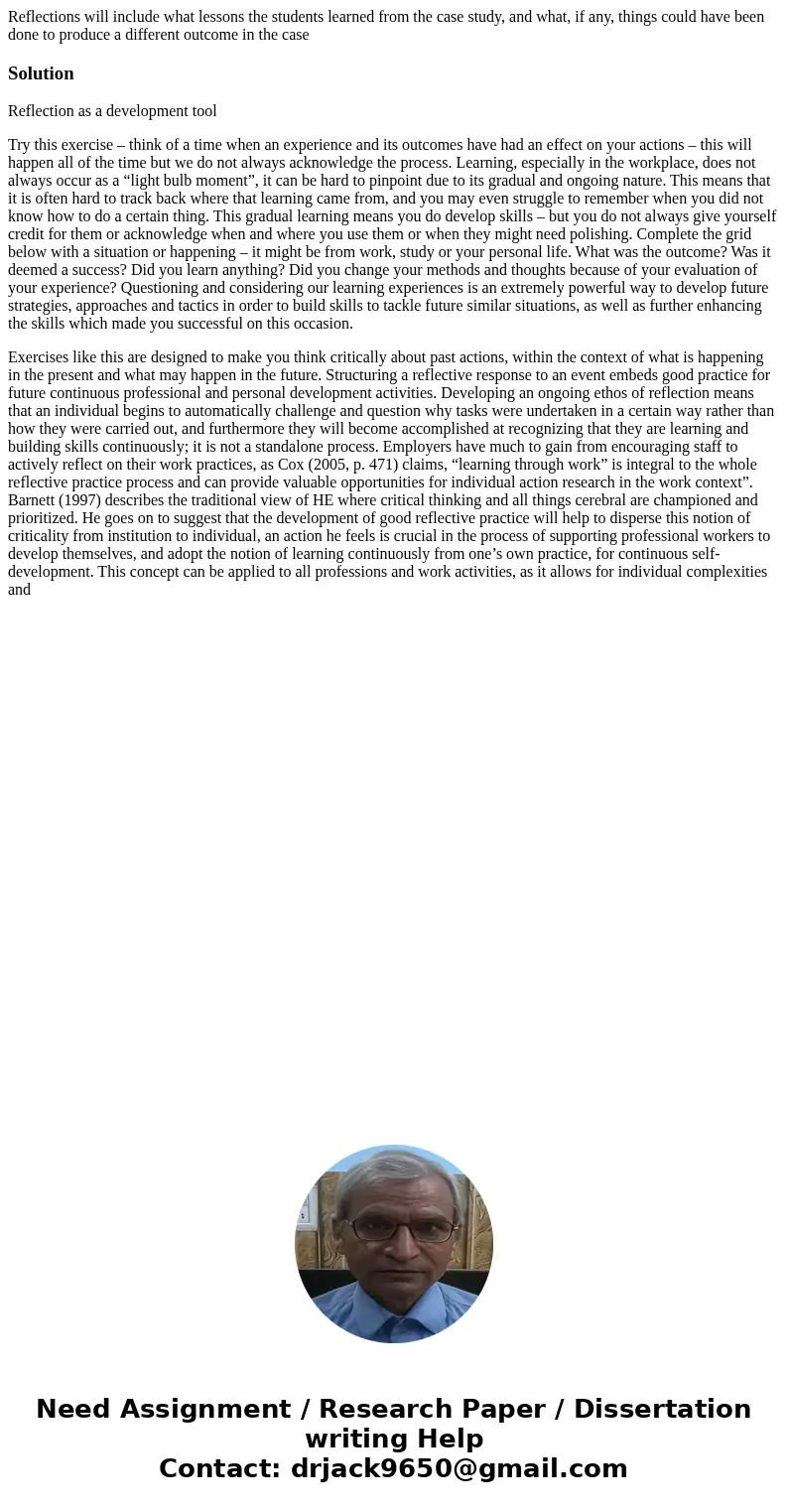Reflections will include what lessons the students learned f
Reflections will include what lessons the students learned from the case study, and what, if any, things could have been done to produce a different outcome in the case
Solution
Reflection as a development tool
Try this exercise – think of a time when an experience and its outcomes have had an effect on your actions – this will happen all of the time but we do not always acknowledge the process. Learning, especially in the workplace, does not always occur as a “light bulb moment”, it can be hard to pinpoint due to its gradual and ongoing nature. This means that it is often hard to track back where that learning came from, and you may even struggle to remember when you did not know how to do a certain thing. This gradual learning means you do develop skills – but you do not always give yourself credit for them or acknowledge when and where you use them or when they might need polishing. Complete the grid below with a situation or happening – it might be from work, study or your personal life. What was the outcome? Was it deemed a success? Did you learn anything? Did you change your methods and thoughts because of your evaluation of your experience? Questioning and considering our learning experiences is an extremely powerful way to develop future strategies, approaches and tactics in order to build skills to tackle future similar situations, as well as further enhancing the skills which made you successful on this occasion.
Exercises like this are designed to make you think critically about past actions, within the context of what is happening in the present and what may happen in the future. Structuring a reflective response to an event embeds good practice for future continuous professional and personal development activities. Developing an ongoing ethos of reflection means that an individual begins to automatically challenge and question why tasks were undertaken in a certain way rather than how they were carried out, and furthermore they will become accomplished at recognizing that they are learning and building skills continuously; it is not a standalone process. Employers have much to gain from encouraging staff to actively reflect on their work practices, as Cox (2005, p. 471) claims, “learning through work” is integral to the whole reflective practice process and can provide valuable opportunities for individual action research in the work context”. Barnett (1997) describes the traditional view of HE where critical thinking and all things cerebral are championed and prioritized. He goes on to suggest that the development of good reflective practice will help to disperse this notion of criticality from institution to individual, an action he feels is crucial in the process of supporting professional workers to develop themselves, and adopt the notion of learning continuously from one’s own practice, for continuous self-development. This concept can be applied to all professions and work activities, as it allows for individual complexities and

 Homework Sourse
Homework Sourse